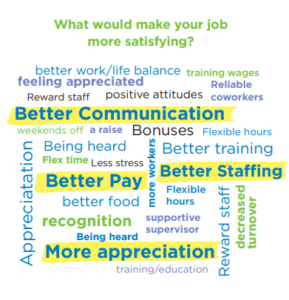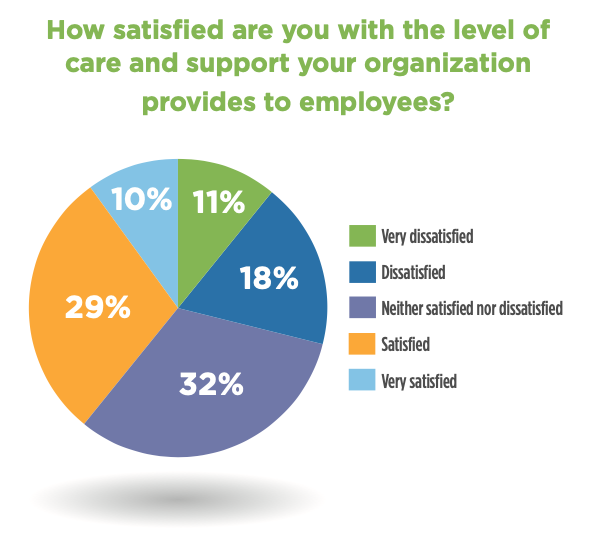Though many skilled nursing and senior living workers are highly likely to recommend similar employment to their friends, many say that perks such as bonuses, extra time off and other supports could improve satisfaction with their own jobs, according to a recent survey of skilled nursing and senior living professionals.
A strong majority of the 2,800 respondents (79%) said “caring for residents” is the most rewarding part of their job. Wages and salary (11%), a “strong relationship with my manager” (8%), and perks and benefits (4%) filled out the top four answers, according to survey-sponsor and human resources technology firm OnShift.
The survey, conducted in spring of 2021, included a skilled nursing representation of 39%. It asked industry workers how likely they were to recommend their employer or the senior care industry to a friend or colleague. About 20% chose the highest likelihood on a scale of 1 to 10, while about 25% chose the same option for recommending the senior care industry as a whole.
Just under 40% of respondents said they were “very satisfied” or “satisfied” with the level of care and support provided to them by their employers, while 29% reported being “very dissatisfied” or “dissatisfied.”
The survey takers, 73% of them caregivers or nurses, were also asked what work perks they value most, whether or not they are actually currently offered. A full 44% said they enjoy or would like bonus pay when working difficult shifts; 24% would value additional paid time off; 16% want to be paid more frequently or access their wages between paychecks; 12% want tuition assistance and 5% would like child care assistance.

The survey also asked an open-ended question inquiring what would make employees’ job more satisfying in an effort to help guide providers as they grapple with ways to recruit and retain employees during a national shortage of frontline workers.
“Most responses focused on better pay, better staffing levels, increased communication, and appreciation from management,” survey administrators said in key findings made available this week. “Additional responses called for more training, time off and teamwork.”
In addition, 29% of respondents said they would value a rewards and recognition program for contributions at work; another 25% wanted a more flexible work schedule; and 16% would like complimentary meals. Smaller percentages also endorsed the ideas of health and wellness services, additional technology, life or disability insurance, and mental health services.




